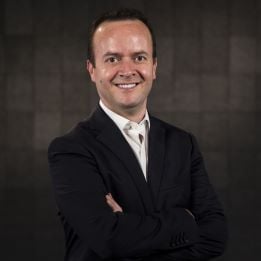

General counsel for Mexico, Central America and the Caribbean | General Motors de México



Jose Lechuga Corvacho
General counsel for Mexico, Central America and the Caribbean | General Motors de México
How do you approach managing legal aspects during periods of instability or crises, and how does your legal strategy align with the broader business strategy to ensure the organisation’s resilience?
About the first part of the question, there are several things I like to consider. First, it is always important to analyse the situation, have a good SWOT radiography to understand what is going on and what steps must be taken to have the best outcome for the company once the storm ends. I know that there are situations that due to its complexity, it is hard to know how things are going to be at the end, but this analysis is important to know what needs to be done to keep operating with the lowest legal risk possible.
Second, define the best legal strategy considering the current factors, resources, and expected outcome. Third, I like to stay on top of things. For me this is a key element because when there is turbulence, lawyers play a key role to provide stability to the whole organisation to make sure that there will be minimal or controlled consequences. Fourth: once there is a plan, and during the whole crisis, always communicate, communicate, communicate. Communicate with your team, with your peers, with the clients (internal/external), your resources, the Government, and other key stakeholders!
Now, about the second part of the question, I strongly believe that a legal strategy must focus on supporting the business, doing the right thing, and meeting expectations. Lawyers are the guardians of the business, so we need to make sure that any advice (i) helps the business to do not become inoperative, (ii) prevent the company of getting into unwanted risks, and (iii) gets it through any level of uncertainty.
What are the main cases or transactions you have been involved in recently?
Over the last year, I have been involved in several projects, but to mention a few: Electric Vehicles (EVs) transition in Mexico considering manufacturing, regulatory and commercial challenges, and opportunities, is one of the more interesting and important projects in my career so far due to its complexity. Plus, it helps to reduce environmental impact’s side effects. Another one, the negotiation of Collective Bargain Agreements. The labor environment in Mexico has changed significantly in the last 5 years and is constantly having updates, so this type of transactions represents a challenge. And finally, what I call the “enhancement of the internal Compliance Environment”. I have always been an enthusiastic of Compliance Programs, so I enjoy developing plans that guarantees that the business operation will meet regulations to guarantee its success.
How do you prioritise diversity and inclusion within your legal department, and what initiatives have you implemented to foster a more inclusive and equitable work environment?
For me, Inclusion and Diversity is not a program, a trend or marketing campaign, but a key pillar and behaviour that in General Motors de Mexico’s legal staff we live day after day to foster an inclusive culture.
To do so, I have implemented some activities, for example, to develop a trust and respect atmosphere in which everybody in the team can truly be themselves without being criticised, questioned, or judged. Second, each team member is invited to participate in any of the activities that General Motors de Mexico performs nationwide that are related to inclusion and diversity. There is total flexibility to do so, it is not a mandatory or imposed activity. Third, since General Motors de Mexico also has I&D Committees, and each team member is invited to be part of any of them. The committees have their own main pillar (i.e. gender, generations, people with disabilities, religion and regionality, education, sexual orientation gender identity, and expression). These are voluntary activities that are not related to our day-to-day work activities, so each team member can openly decide to participate on those that they like.
Finally, I am the leader of the Generations Committee with other two members of the Executive Committee of General Motors de Mexico. I strongly consider that the diversity of thoughts and perspectives enriches us as human beings, strengthens our work environment and favours our professional success.
How do you manage and motivate your legal team to ensure high performance and professional growth?
Personally, this is one of the most important duties of being a leader. In my case, I do several things, for example, I like having cross-functional projects within the team. This avoids of having specialists’ lawyers that only do one thing. Instead, this helps them to explore other fields of the law that they might be interested and boost teamwork. I also do staff rotation every 2-3 years to allow team members to increase their areas of knowledge. This helps them to be ready for career opportunities according to their career plan. But in my opinion, none of this is useful unless there are professional growth opportunities within the organisation. I think that it is huge topic that has three co-related considerations and players: the first one belongs to the company/the employer and relies on the fact that there will always be work that needs to be done, and for lawyers even more. The second part belongs to each team member directly, as they must understand that their professional growth depends on themselves and not on their boss or the company. So, the team member needs to have a clear career plan with the steps that needs to be taken.
Of course, as a leader, you must check that they have such career plan, one that is achievable, identifying those skills and abilities that are required for that person to have to move to the next step, and track down their improvement. The role of an in-house lawyer is most of the times related to someone who solve things, which is true, but there is also preventive work that could be done. This is a great area of opportunity for us as lawyers to have professional growth within a company or organisation. The third part has to do with generating an environment of trust with the team, so that they know that if they do their part, there will be professional growth. And this is the leader’s responsibility, to make things happen and to boost career opportunities for the team members based on their skillset. So, when the team member knows their career plan, what areas of improvement needs to be developed, and there is certainty that if they do their homework there will be professional growth, it becomes a virtuous circle.